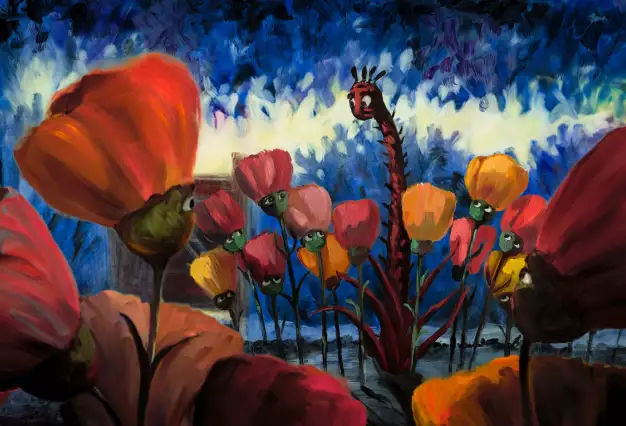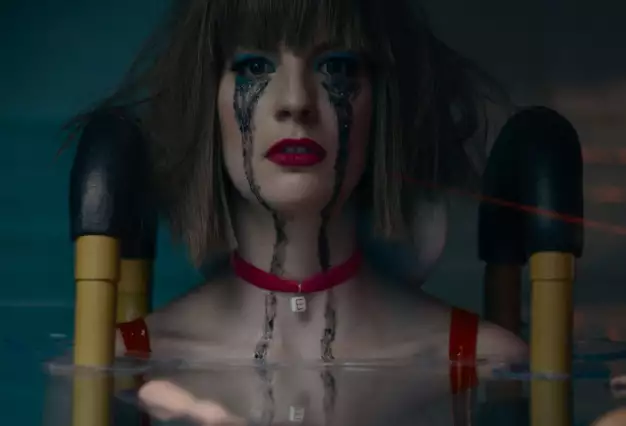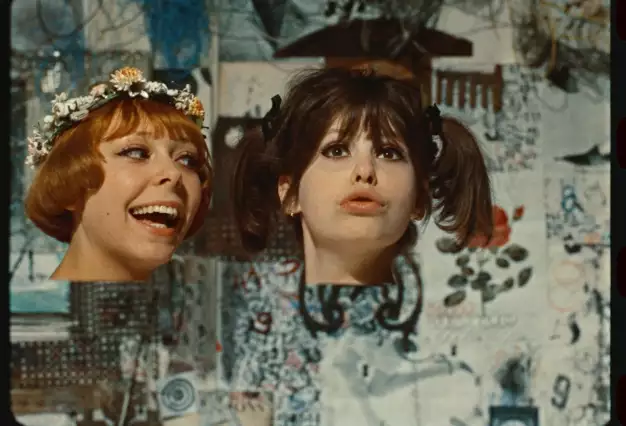
14 May 2018
Radovan Síbrt: I Have to Love the Project
Radovan Síbrt at Cannes 2018
Radovan Síbrt: I Have to Love the Project
Radovan Síbrt at Cannes 2018

The successful Czech production company PINK, coproducers of the Berlinale award-winning Touch Me Not, and producers of Panorama Dokumente opening When the War Comes, have many new projects ahead of them, including a coproduction with Iran and a Polish psychological drama. Plus, Radovan Síbrt was selected to join this year’s edition of European Film Promotions's networking platform Producers on the Move at the Cannes Film Festival.
Article by Hedvika Petrželková for Czech Film Magazine / Summer 2018
PINK was founded by Alžběta Karásková and Radovan Síbrt to seek out new talents and produce both documentary and fiction auteur films. Their latest big success was participation in this year’s Berlinale with two feature films. They introduced not only the winning film by Romanian director Adina Pintilie, recipient of both the Golden Bear and the Best Debut Feature award but also the documentary When the War Comes, which successfully opened the Panorama Dokumente section and was nominated for the Glashütte original Award.
Touch Me Not is an international, five-country coproduction, and it was PINK’s second coproduction experience. Síbrt says: “Our first coproduction, Cinema, Mon Amour, premiered at the Dok leipzig festival, and during its rollout we met the Touch Me Not producers. We also had coproducers from Croatia during the production of When the War Comes, but we were the main producers. At the moment, we’re doing a Czech-Iranian film essay production, which we’re hoping to realize thanks to coproduction. The pooling of finances, and above all experiences, from different countries seems to be essential these days.”
Recently, another of PINK’s coproduction features has appeared on the screen in several countries: the three-part documentary project 1968mm, depicting a revolutionary year through 8mm family archives. “It captures the stories of people who lived through the year 1968, not only in the Czech Republic, but the whole world, so the events depicted include Black Panther protests, the feminist movement, and of course the Soviet-led invasion of Czechoslovakia, but also student strikes in France and Americans in Vietnam,” Síbrt says. 1968mm is a German-Italian-Israeli-Czech coproduction, and the partner list includes Arte as well as Czech Television. “As Czech coproducers, we were in charge of the filming in Czechia, including preliminary research. Every episode has a significant Czech footprint and a strong story, which gives a new, international historical context to our national trauma,” adds Síbrt.
The Iran Experience
PINK has been developing a Czech-Iranian project with the working title Don’t Gaze Long Into the Abyss with the Iranian director Mohammadreza Farzad for a few years now. The theme is based on the story of Jiří Polák, a forgotten Czech director with an interesting fate.
Polák graduated from Prague’s FAMU (Film and TV School of the Academy of Performing Arts) in 1968. After winning the main documentary film award in Oberhausen with his student feature, The Hospital in Kuks, he immediately emigrated. He travelled to Iran through Switzerland, then stayed there until the Islamic revolution, living on the island of Hormuz, in south Iran, for ten years.
“To me, it’s a magical story,” says Síbrt. “Back then, artists in Iran, including Polák, were close to the royal family, but he was exiled to the wild Island of Hormus after he had an affair with a lady of the queen’s court.”
While living on the island, the director became an architect and a painter, and he built several buildings that are still standing to this day, protected as historical landmarks. “After the Islamic Revolution, Polák had to flee the country, so he left for France and ended up in a mental hospital in Paris. After the 1989 revolution, he returned to Czechia, where he died several years later, largely forgotten,” Síbrt recounts.
The feature, which will take the form of a pseudo-documentary, has garnered €20,000 in support from the Czech Film Fund, and is still awaiting other coproducers.
Images of Love
Another feature project that Síbrt and Karásková are working on, Images of Love, is directed by the Czech-based Polish director Tomasz Wiński. “When Tomasz first approached me with a short synopsis, I felt the story was potent—there was something to work with,” Síbrt says.
The film tells the story of a young, successful married couple, Petr and Hana, who own a beautiful apartment, a dog, and a company developing mobile apps. As technology increasingly intrudes on their life, it causes a crisis in their relationship. “One of the main themes of the movie is how we replace life with things that merely simulate life,” says Síbrt.
The app Petr and Hana are developing is designed to replace a living partner, anticipating human desires and thoughts. “It’s like a child that comes between them and starts to ruin their lives. They have to go back to the beginning and look for the reasons why they’re together. Assuming that such a reason still exists.”
Wiński and Síbrt began work on the project three years ago and took part in several workshops, including EKRAN+, organized by the Andrzej Wajda Film School. “It was a great experience for us,” says Síbrt, “working under the guidance of these great figures, especially Ildikó Enyedi and Krzystof Zanussi. Thanks to the workshop, we had the opportunity to shoot two scenes from the film, even though we were still in the script-writing phase.”
Images of Love and its creators also took part in the Midpoint Intensive (2016) and Midpoint Feature Launch (2017) workshops, and presented their work at the Connecting Cottbus coproduction market in 2017. Wiński started writing the original screenplay together with actress Hana Vagnerová, and they were later joined by well- known Czech author Petra Hůlová.
Lust for Life
A document about the Czech band the Tap Tap, composed of musicians with disabilities, is also in production, with Síbrt taking the helm as director. “I don’t want to make a whiny film about disabled people. I would like it to be a celebration of their energy. I’m fascinated by them as people who fate has not been kind to, by how they can live with their disabilities — they don’t complain, they live in the moment. Many of them have a progressive condition, so they don’t know for sure how long they’ll be here, many of their friends have already passed. So I’d like the film to be about optimism and joy, about not having to have big plans for life, but still living it to the fullest,” Síbrt explains.
This project was also supported by the Czech Film Fund (€60,000).
There are several more projects PINK is planning to work on, one of them being Adina Pintilie’s new picture. “We would love to work more with Adina,” says Síbrt. “Her new film will be based on some of the characters and themes that we worked on during the production of Touch Me Not but didn’t fit into the end result.”
“We have to love every project,” Síbrt says of how he picks his films. “There isn’t much sense in calculating. As soon as you’re in it for the money, it doesn’t usually end well. You have to believe, because only then can you convince the people around you that it’s meaningful to invest money in something. You have to have faith that we need to develop and cultivate the world around us, not just use it to further our own ends.”





